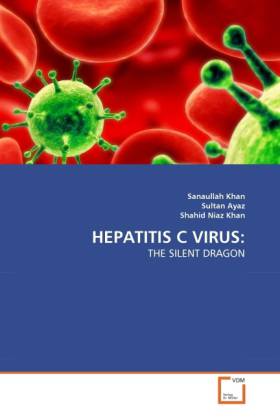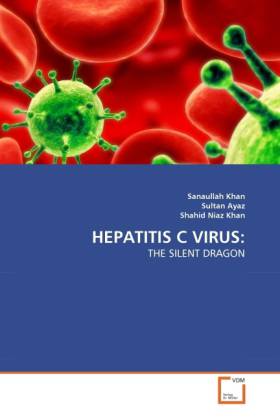
- Afhalen na 1 uur in een winkel met voorraad
- Gratis thuislevering in België vanaf € 30
- Ruim aanbod met 7 miljoen producten
- Afhalen na 1 uur in een winkel met voorraad
- Gratis thuislevering in België vanaf € 30
- Ruim aanbod met 7 miljoen producten
Zoeken
HEPATITIS C VIRUS:
THE SILENT DRAGON
Sanaullah Khan, Sultan Ayaz, Shahid Niaz Khan
Paperback | Engels
€ 48,45
+ 96 punten
Omschrijving
The genotyping results of this study suggest that type specific PCR evaluated in this study may reliably be used in genotyping studies of HCV. Both type specific PCR and serotyping has advantages and drawbacks. Serotyping assay have the advantages over molecular biology based typing methods only in terms of low cost, rapid test procedure and requirement of a few instruments that would be present in any clinical laboratory. However, ELISA is less sensitive and does not allow identification of HCV mixed infection and subtypes. Furthermore, the serotyping assay cannot differentiate between current and past HCV infection as the antibody remains in patient's body for some time (from 2 years to 12 years) after the clearance of the virus. The type-specific PCR as used in this study is complex and demands great care and expertise for specificity but provides subtype and mixed infection information, in contrast to the serotyping assay. Detection of a mixed infection by a type-specific PCR is relatively frequent and should be interpreted with caution. In the nut shell, the type specific PCR is a convenient method.
Specificaties
Betrokkenen
- Auteur(s):
- Uitgeverij:
Inhoud
- Aantal bladzijden:
- 100
- Taal:
- Engels
Eigenschappen
- Productcode (EAN):
- 9783639330410
- Verschijningsdatum:
- 3/03/2011
- Uitvoering:
- Paperback
- Afmetingen:
- 152 mm x 229 mm
- Gewicht:
- 159 g

Alleen bij Standaard Boekhandel
+ 96 punten op je klantenkaart van Standaard Boekhandel
Beoordelingen
We publiceren alleen reviews die voldoen aan de voorwaarden voor reviews. Bekijk onze voorwaarden voor reviews.











